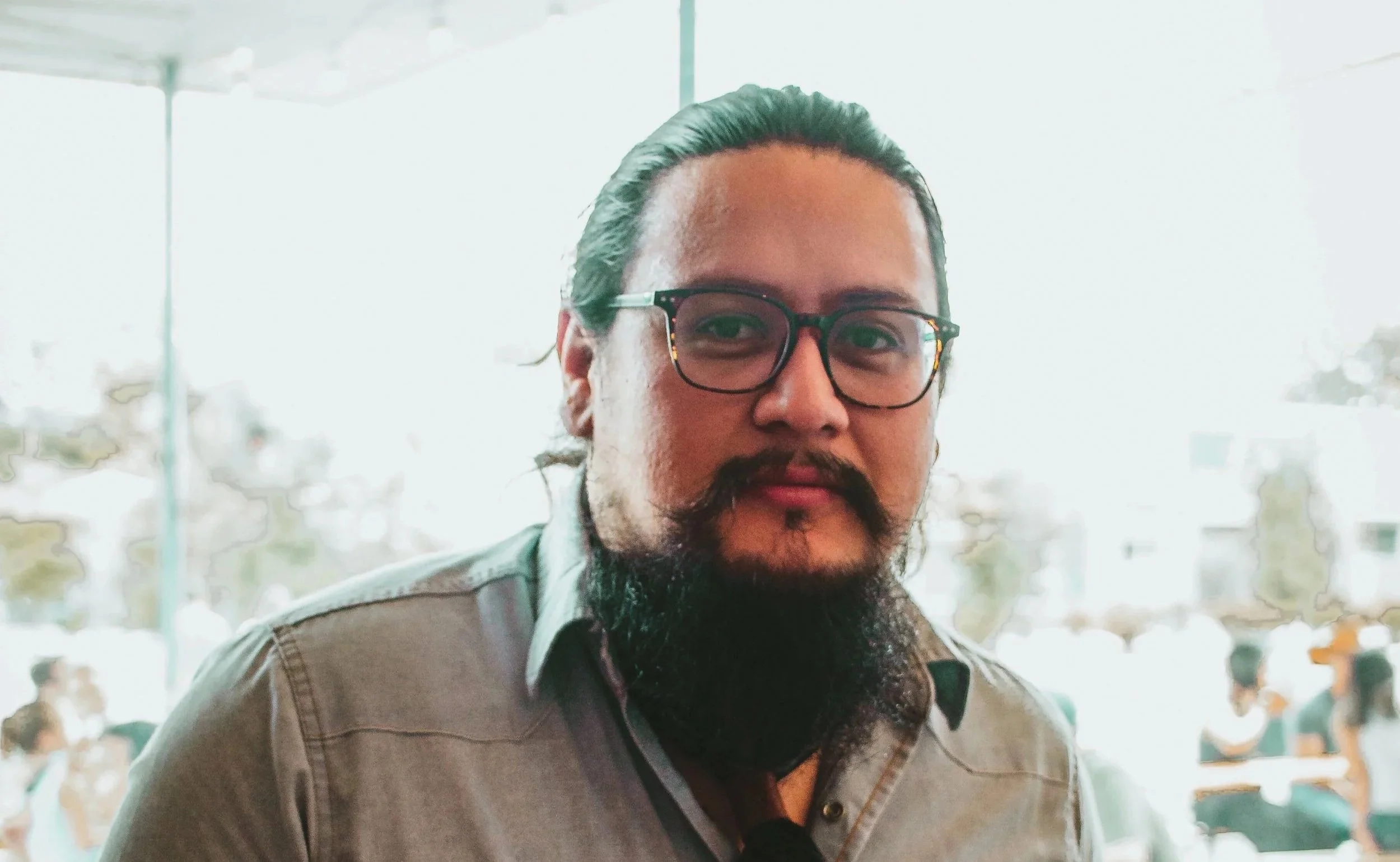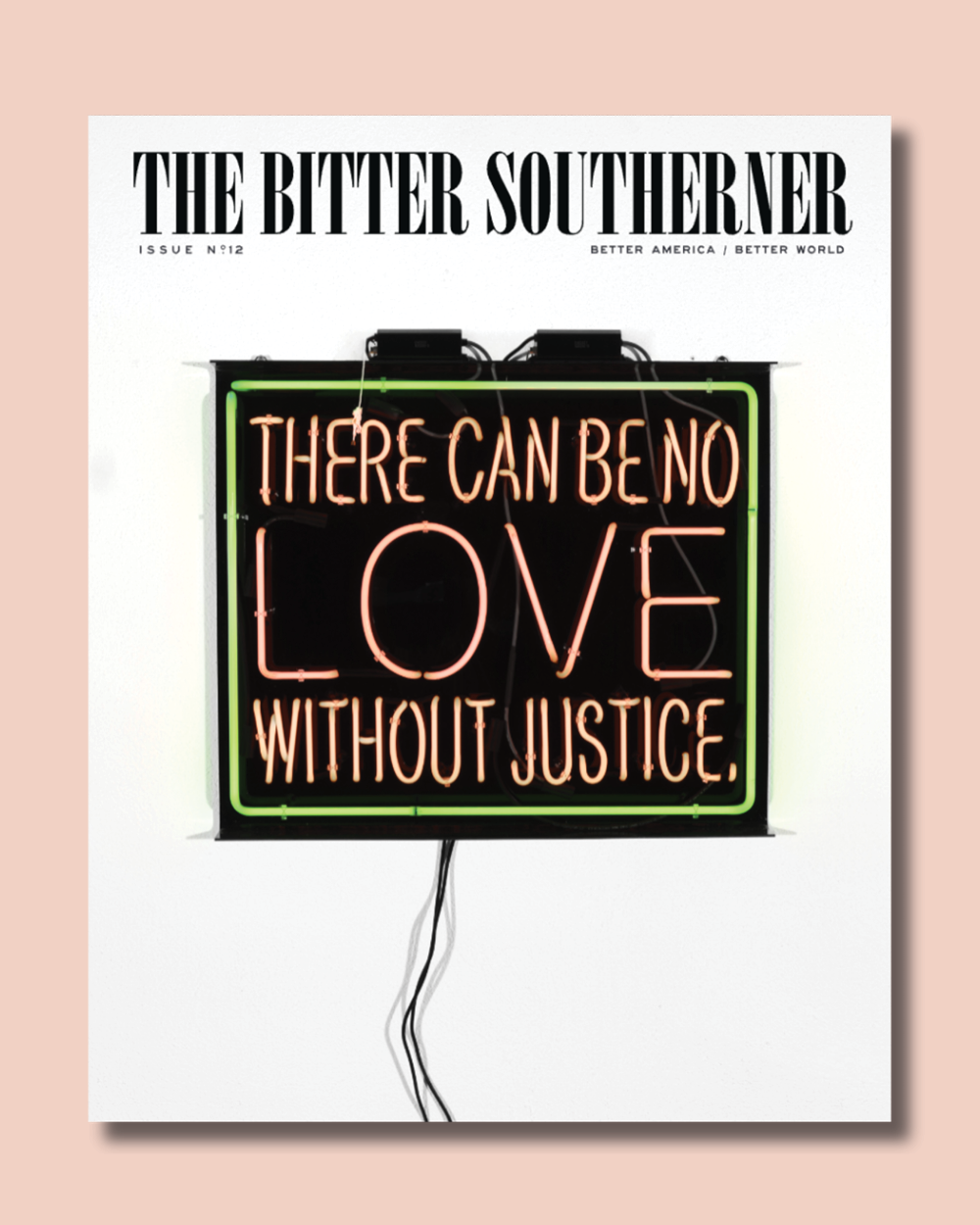Words by Reyes Ramirez
Photo by Romeo Harrell
October 14, 2025
I’d already been a finalist twice before by the time I was finally appointed to be the Houston Poet Laureate in April 2025. This blessing came at a period when what had been stereotypically relegated to happen only in the American South became prioritized in the American mainstream: fascistic dialogue on violence against immigrants and ending birthright citizenship; government agents deporting U.S. citizens and undocumented Americans alike without due process; and the Supreme Court issuing a decision to make racial profiling of people like me legal. Seeking a position of such hypervisibility as the poetic representative of the fourth largest city in America ran counter to so much that was embedded within my upbringing as the son of immigrants.
I recognize that I’m everything fascists hate: multiethnic with heritage from El Salvador and Mexico, Brown, an intellectual, a leftist, an educator, a translator of Latino literature into English. I make enough money to pay my bills. I teach writers of color. I got a full ride to college as a first-generation college student. I then earned a master’s degree. I take care of my hair. I support queer writers and speak against genocides. I lift weights. My wife is my best friend. And, perhaps worst of all, I’m a poet. Fascists kill for much less. After all, my poetry is inherently anti-fascist.
When I speak to young people at schools or detention centers, I read a poem titled “Pozole,” wherein I describe making the eponymous dish that my mother taught me to cook as a boy, albeit with poetic license. When I finish, I explain that every youth of color holds centuries of knowledge that has survived racism, poverty, violence, and capitalism. That these memories are older than the buildings surrounding them, older than the state, older than the United States, older than empire. That preserving a people’s memory takes the work of every generation but only one generation to forget. We’re nothing short of miracles, despite what our government says. That’s what being a Houstonian means to me, and I intend to let everyone know.
I joke that people of color from Texas don’t claim the state they’re from but rather their city: “I’m from San Anto” or “I’m from Dallas” or “I’m from Hustle Town.” I think this is because we have more control of our destinies in our immediate communities than under a government that constantly tries to dispossess us of our political power. Houston is a sprawling metropolis that is considered “majority-minority.” The city leans more progressive and maintains an undeniable presence in contemporary American culture and industry for better and worse, whether it be Beyoncé or the Rodeo or NASA or the Medical Center or Megan Thee Stallion or its cuisine or energy technology or etc., etc. Why else would the state take over our school system and institute one of the most blatant examples of gerrymandering? Because Houston can be seen as counternarrative to Texas mythology. And, now, to America’s.
As I traveled throughout the American South, I found that this is not an anomaly. Whether it be Jackson, New Orleans, Memphis, or Louisville, the region is full of people ready for change as they produce art of the highest caliber with some of the lowest government resources. This is why I wanted to be Houston Poet Laureate. To show that people in my community believe in poetry and art and the spirit of creation and healing, even in the face of fascism.
The beauty of being a Poet Laureate for one of the largest cities in the world is that though I will never know every poet and be able to attend their readings or speak enough languages to comprehend their work, what I do know is that making things happen in Houston means you can make things happen anywhere because Houstonians respect those who do things well. Every week I am in awe of the art and literature being created in my city, of all the people writing and creating in a time when memory, language, and imagination are being undermined and obfuscated. That’s how I know we’ll win.
As much hope and pride as I have in my people, I must also accept the consequences of my language. I’ve had to consider my words with concern of violence. I’ve had to consider being doxed or threatened or shipped off to my fatherland as its victim. But I remember that this has always been the role of the poets, storytellers, song keepers, and culture bearers who have nourished me: to say what needs to be said. Everything in my life has prepared me for that responsibility. I echo my poetic ancestor Roque Dalton: “Poetry, like bread, is for everyone.” And what happens when you deprive people of bread? Fascism is on a timeline to self-destruction.
I like to think that the generations to come, like my great-great-great-grandchildren, will discover me in some book or family story. I won’t know the details. But when they do learn about me, they’ll know I spoke and wrote and loved and that I was never afraid. That I always professed that the role of the poet is to give people the language to speak to each other in times of darkness.
We exist. We eat and love and grow stronger. Poets, writers, artists, intellectuals, community organizers, educators: May you never be afraid to say the right thing.
— Reyes Ramirez
Reyes Ramirez (he/him) is the 2025–2027 Houston Poet Laureate, as well as a writer, educator, curator, translator, and organizer of Mexican and Salvadoran descent. He authored the short story collection The Book of Wanderers (2022), the poetry collection El Rey of Gold Teeth (2023), and Cerveza Songs: Houston, TX (2024), a collection of craft beer poetry reviews and photography. Reyes has been honored as the Winner of the 2025 Anne Frydman Translation Prize from The Hopkins Review and is a 2024 Speculative Play and Just Futurities Fellow, a 2023 Intercultural Leadership Institute Fellow, a 2023 Dobie Paisano Fellow, and more.





